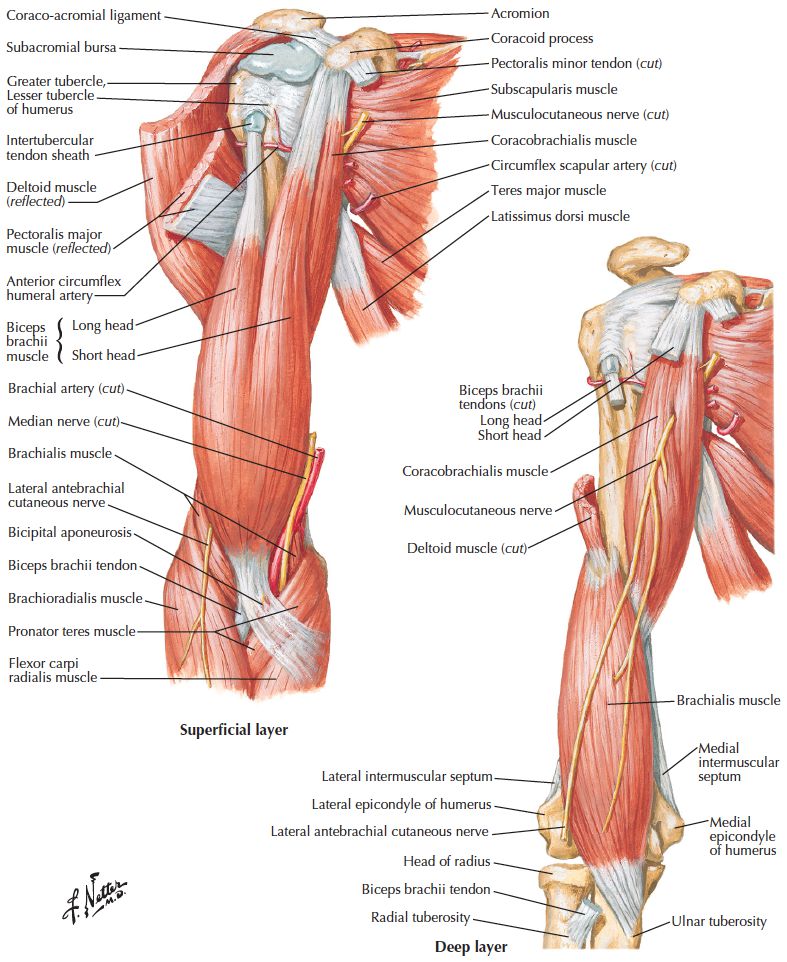Difference between revisions of "ANTERIOR COMPARTMENT OF ARM-BRACHIALIS"
From NeuroRehab.wiki
(Imported from text file) |
(Imported from text file) |
||
| Line 1: | Line 1: | ||
[[Summary Article| | ===== [[Summary Article|'''SUMMARY''']] ===== | ||
1. O: lower 2/3 of anterior surface of humerus. | |||
<br/>2. I: coronoid process & ulnar tuberosity. | <br/>2. I: coronoid process & ulnar tuberosity. | ||
<br/>3. NS: musculocutaneous n. | <br/>3. NS: musculocutaneous n. | ||
| Line 7: | Line 7: | ||
<br/><i>[[Image:paste-4750233830338.jpg]]</i> | <br/><i>[[Image:paste-4750233830338.jpg]]</i> | ||
<br/><b>Image: </b>Brachialis muscle. Netter. (2014). Atlas of Human Anatomy, Sixth Edition. 6th ed. Elsevier. | <br/><b>Image: </b>Brachialis muscle. Netter. (2014). Atlas of Human Anatomy, Sixth Edition. 6th ed. Elsevier. | ||
==Reference(s)== | ==Reference(s)== | ||
Revision as of 08:38, 30 December 2022
SUMMARY
1. O: lower 2/3 of anterior surface of humerus.
2. I: coronoid process & ulnar tuberosity.
3. NS: musculocutaneous n.
4. A: elbow flexion.

Image: Brachialis muscle. Netter. (2014). Atlas of Human Anatomy, Sixth Edition. 6th ed. Elsevier.
Reference(s)
R.M.H McMinn (1998). Last’s anatomy: regional and applied. Edinburgh: Churchill Livingstone.
Gray, H., Carter, H.V. and Davidson, G. (2017). Gray’s anatomy. London: Arcturus.